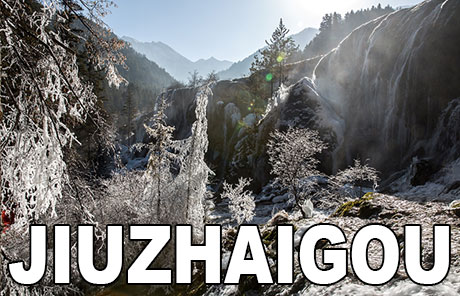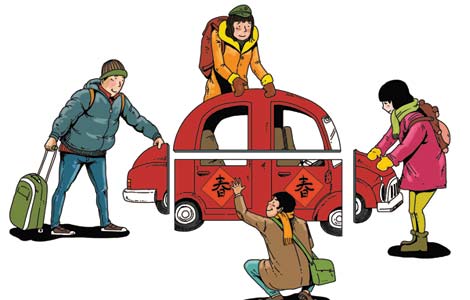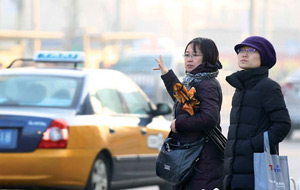Fog disrupts travelers' return
Updated: 2013-02-18 01:38
By WANG QIAN (China Daily)
|
||||||||
![Tangshan, Hebei province, is just one northern city shrouded again in heavy smog on Sunday. [LUO YUNFEI / CHINA NEWS SERVICE] Fog disrupts travelers' return](../../attachement/jpg/site1/20130218/00221917dead128ba77113.jpg) |
|
Tangshan, Hebei province, is just one northern city shrouded again in heavy smog on Sunday. [LUO YUNFEI / CHINA NEWS SERVICE] |
Smog blanketed Beijing and parts of northern China on Sunday, disrupting many passengers' plans of returning to work after the Spring Festival holiday and triggering concern over air pollution.
Beijing Capital International Airport delayed 23 flights and canceled four others because of fog covering the runway on Sunday morning, according to the airport's real-time flight information.
At one point on Sunday morning, visibility in the airport dropped to less than 10 meters, making takeoffs and landings difficult, Xinhua News Agency reported.
Visibility across the capital was reduced to less than 500 meters, and a yellow alert for heavy fog was issued, said Sun Jisong, chief weather forecaster at the Beijing Meteorological Bureau.
There are four levels of fog alerts: red, orange, yellow and blue, with red being the most severe.
Outside Beijing, haze stretched through Hebei and Shandong provinces and Tianjin, forcing the closure of tens of highways, according to the Ministry of Transport.
Fifteen highways through Hebei were closed because of fog and 24 flights were delayed in Shijiazhuang Zhengding International Airport.
The low visibility disrupted many passengers' travel plans after the Spring Festival holiday. Some who planned to drive to work had to stay at home or left later than planned because of the highways closures.
The travel peak was on Friday, at the end of the holiday. On that day, more than 7.3 million people took trains and 23.4 million vehicles were on highways across the country.
The murky weather has aroused concern about air pollution. The readings for PM2.5 — hazardous particulate matter of 2.5 micrometers in diameter or less — rose again in Beijing and neighboring areas, after several clear days during the holiday.
Beijing's air pollution index reached "heavily polluted" on Sunday, and PM2.5 readings exceeded 200 micrograms per cubic meter downtown, according to the Beijing Environmental Protection Monitoring Center.
Air pollution had been worse in Shijiazhuang, Hebei province, with PM2.5 readings reaching 321 on Sunday, the provincial environmental protection bureau said.
Xu Gang, 50, a taxi driver in Beijing, said he had been coughing since mid-January and the air pollution was to blame.
Concerned about the haze, Song Dan, a 32-year-old Beijing resident who is pregnant, bought an air purifier.
"I have to close the door and windows, turn on the air purifier at night at home, and if I go out, I wear a mask," she said.
Sun said children and the elderly should limit outdoor activities when it is so hazy, but he added that the sky will be clear on Monday.
The National Meteorological Center reports that a cold snap has been hitting central and eastern parts of China since Sunday, bringing snow in the north and rain in the south.
The fog is expected to be dispersed by wind in northern China, meteorologists said.
Temperatures in central and eastern parts of China will drop up to 12 degrees before Tuesday.











